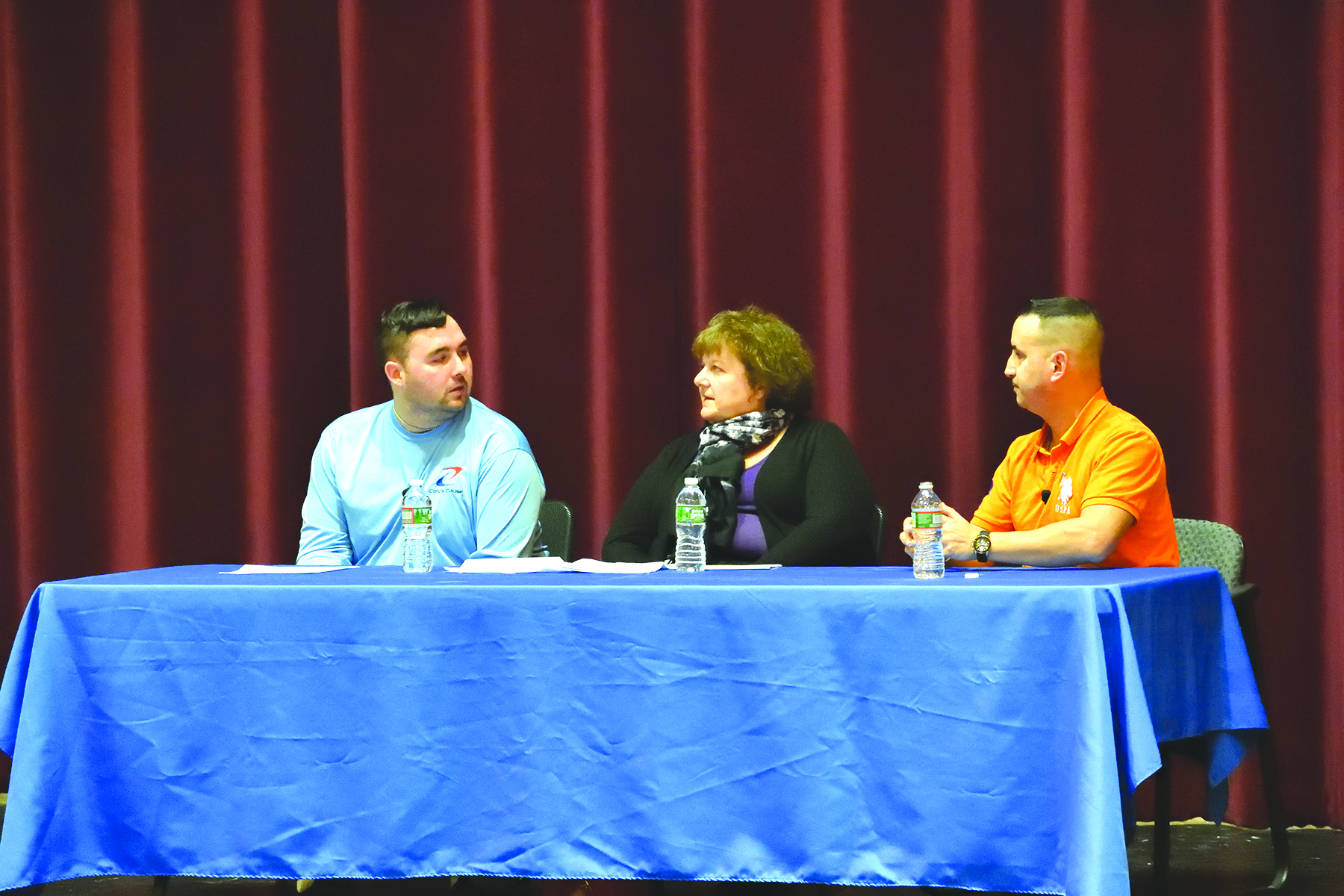A large crowd gathered to hear special guests Cory, Dave and Laurie Palazzi speak at Natick High School on March 7 at the “Not My Kid” event. As the opioid crisis continues in Massachusetts and across the country, Cory Palazzi’s story of addiction and recovery is powerful and timely.
The event was sponsored by a number of organizations, including Natick nonprofits Supporting Our Addicts Recovery (SOAR), Natick Together for Youth (NTY) and SPARK Kindness, all of which work to educate the public about addiction or provide resources to support wellbeing.
Eileen Collett of SOAR began the evening with introductory remarks. “We hope to increase awareness of the growing opioid epidemic among young people in this country and in our own community,” she said. “Our goal is to educate you to realize that this is not someone else’s problem. It is a reality that touches people from all walks of life.”
A Life Turned
Upside-Down
Husband and wife Dave and Laurie Palazzi took the stage to speak about their lives with their son Cory before his heroin addiction. At Taunton High School, Cory was a member of the baseball and football varsity teams, as well as a member of the National Honors Society. He was hard-working, gregarious and seemed to be on the path to success.
Everything changed when Cory suffered a sports-related shoulder injury. “When this happened to him back in 2005, I didn’t really know any better,” his mother Laurie remembered. “Nobody was talking about addiction. It never crossed my mind that he could become addicted to the pain medication he was prescribed.”
Unfortunately, Cory’s prescribed medication led to heroin use, and he was able to hide his problem until he was deep into his addiction. In July of 2013, he overdosed, going several minutes without breathing. He survived, but is now permanently disabled from the brain injury he suffered.
“They always say that the three places you can end up in is jail, institutions and death, except that I’m the exception to that rule, because you can also end up disabled for the rest of your life,” Cory cautioned during the presentation. “Please keep that in mind.”
Finding Purpose
in Cory’s Cause
The Palazzi family has translated tragedy into activism through their nonprofit, Cory’s Cause. Cory’s ability to communicate is improving over time, and he retains all of his memories from before his overdose, which makes him a valuable witness of the seriousness of drugs.
Besides frequent speaking engagements for schools, Palazzi family also participates in politics. One notable campaign involved a testimony from Cory, where he shared his story and advocated for Bill H.4056. The bill was designed to help lower substance abuse, and was passed by Massachusetts Governor Charlie Baker in March of 2016.
These accomplishments and proud moments are a world away from where Cory first was after his overdose, as he began to adjust to his disability. “I kept thinking to myself, ‘Why am I even alive? I’m going to be useless to everybody, so why didn’t God just kill me?’ And then after the first time that we ever did one of these presentations, I realized that this is why he let me live,” he said.
Abating Addiction
The Palazzi family believes the more discussion there is about these issues, the more situations will improve, both for individuals, families and communities at large. “Addiction is something that should be kept in the closet or hidden,” Cory’s father Dave said during the presentation. “When you talk about it and get it out there, it ends up better in the end.”
Becoming educated about the addictive potential of prescribed pain medication, as well as finding alternative pain management options, are important for preventing harmful and potentially deadly circumstances before they ever happen.
Above all, Laurie asked the audience to take away this message from the evening: “Remember that this disease has no boundaries, it does not discriminate, and it can happen to anyone. I never thought in a million years that addiction would come into our lives.”
To learn more about Cory’s Cause, visit www.coryscause.com.

Issue Date:
April, 2017
Article Body:
